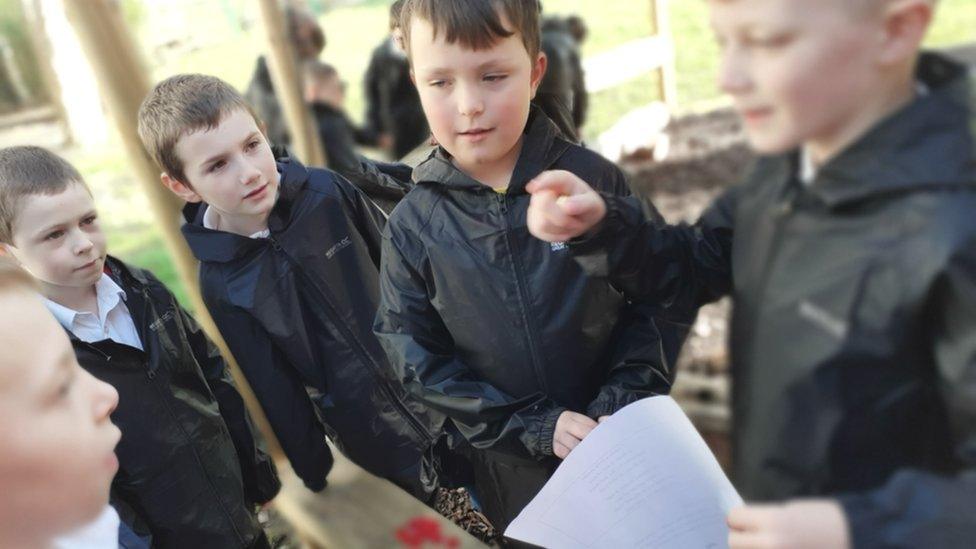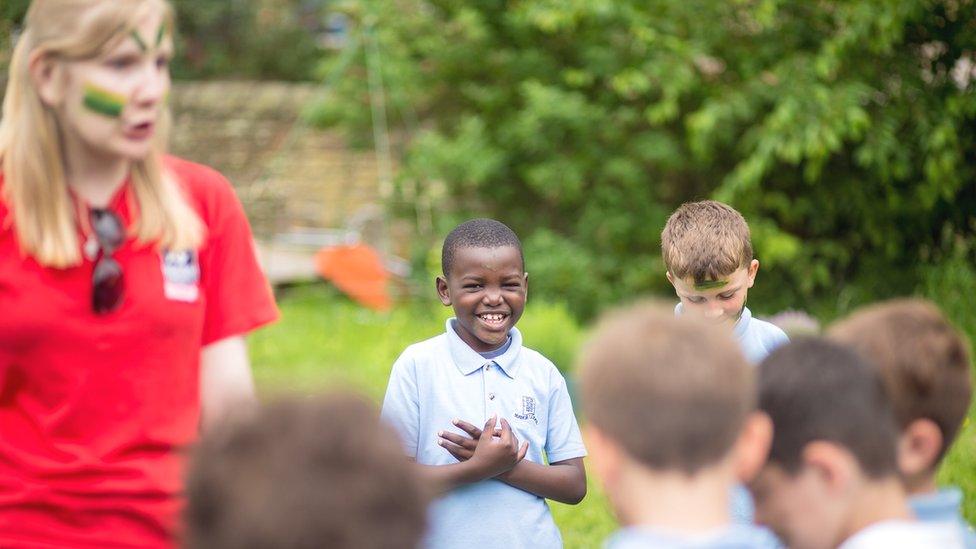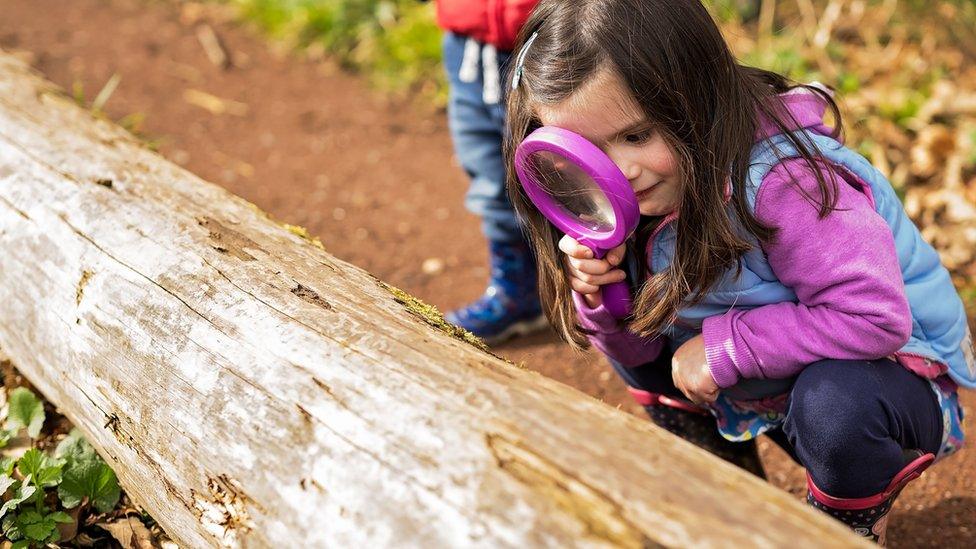'Miss, what's a duck?' Schools tackle nature-deprived kids
- Published

Westminster Primary has revolutionised its approach to outdoor learning
When school teacher Kim Leathley took her class on a trip to the local aquarium, she was asked an unusual question.
"Miss? What's that?" said a nine-year-old boy, pointing towards the waves, as they walked along Blackpool promenade.
It turned out he'd never seen the sea before.
A surprise, given the school is in the middle of Blackpool and only a few streets from the seafront.
Other teachers have had similar experiences over the years on school trips outside the city, she explains. A 10-year-old once asked what a duck was, while a pupil - spotting cows in the field - said: "Look at those horses."
"As a school, we're in a very built-up area in Blackpool," Kim explains. "We've had some very extreme examples of our children with nature."
Westminster Primary Academy is in an area with few green spaces where wildlife and nature are in short supply.
Although many children live only minutes from the beach, they may not get to spend much time there. And while Blackpool is surrounded by spectacular countryside, such as the Forest of Bowland, Kim says many parents don't have cars or can't afford public transport.
"They're just not getting the opportunities a lot of other children would get," she adds. "So, we thought, 'well, let's bring nature to them'."

The programme helps teachers deliver outdoor classes
Kim is now outdoor education lead at the primary school, which became a Nature Friendly School two years ago. The scheme, which aims to make school grounds greener and wilder, is a partnership between The Wildlife Trusts, mental health charity YoungMinds, and several other nature organisations.
The project trains teachers to deliver outdoor classes, inspiring their pupils to learn more about environmental challenges and the natural world, and encouraging teamwork, social skills, confidence and creativity.
Nature Friendly Schools has already worked with 90 schools in areas with high levels of social deprivation, giving thousands of pupils the opportunity to learn and play in nature.
The leaders hope to expand the programme this year to help children find solace in nature after the hardships of lockdowns.
The Wildlife Trusts chief executive Craig Bennett says spending time outside, engaging with and learning about nature, is paramount to children's education.
"Sadly, so many children go to school in areas where there is very little access to green space," he says.
"At The Wildlife Trusts, we want to break down barriers that inhibit children from spending time in nature - including during the school day."
Westminster Academy now has an outdoor classroom as well as a pond, more trees and wildflowers, a trim-trail and an outdoor gym.
The teachers incorporate nature into the curriculum as much as they can, says Kim. "What we're trying to do as a school is to get our children to like, respect and admire nature, so that - as they grow up - they understand the significance and importance of keeping it safe and keeping our planet safe."

Research shows spending time in nature has a positive impact on children's health and wellbeing
In lessons outside, children learn about threats to bees, including climate change, habitat loss and pesticides.
Pond dipping is a perennial favourite, not just to identify water creatures, but to learn about physical forces through studying floating objects.
"The children absolutely love it," she says. "A lot of them say it doesn't feel like learning even though we know we're learning and that's what makes it so good for them."
When Kim asked her young charges to say what they liked about outdoor learning, the responses were heart-warming.
"One girl said, 'I just love discovering new creatures.' Another explained, 'When I'm outside, it doesn't feel like learning, because it's so much fun and I just know that my brain is getting bigger'."
Follow Helen, external on Twitter.